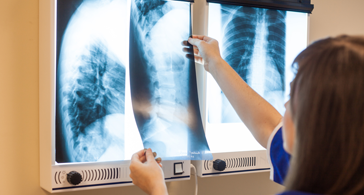Patient/Family Member
Living with ECD can be challenging. This is a complicated disease that impacts patients and families in many different ways. We believe one of the best ways to cope with ECD is to learn all you can and to get involved in the care of the patient. Some data found on the internet about ECD is out-of-date. The knowledge about ECD and the treatment options available for ECD patients are increasing at a rapid rate. As a result, patients are doing much better now than they did just a few short years ago.
Finding a care center to manage ECD treatments is very important. Many patients are seen at an ECD Referral Center where the staff is interested in ECD research and where multiple patients are treated by a team of physicians. Most patients also maintain contact with a local physician to monitor their day-to-day health. This works best when the referral center and local physicians communicate and collaborate to ensure the best care of the patient.
Some patients find they are unable to work. In this case it is often necessary for the patient to apply for disability benefits. Different patients are eligible for different programs. There are federal programs and sometimes state programs for which an ECD patient might qualify. Having the patient’s physician complete a detailed statement as to how ECD has affected the patient and why that prevents them from working is helpful when applying for disability. It is also important for a patient’s significant medical records to be submitted when applying for disability. These are the records that show the involvement of ECD and how it is affecting the patient.
Patients and family members are encouraged to get involved in the work of the ECD Global Alliance (ECDGA). This is a great way to learn and to make contacts with other ECD patients and their family members.
-
Treatment Centers
 Who will treat me?
Who will treat me?
-
How is ECD treated?
 Where do I turn for help/information?
Where do I turn for help/information?
-
How is ECD monitored?
 What testing should I expect?
What testing should I expect?
-
CONNECT WITH OTHERS
 Communicate with others
Communicate with others
-
What trials are open?
 How can I learn about the latest treatments?
How can I learn about the latest treatments?
-
ECD Medical Articles
 What are the latest research findings?
What are the latest research findings?
Last updated: March 14, 2015








